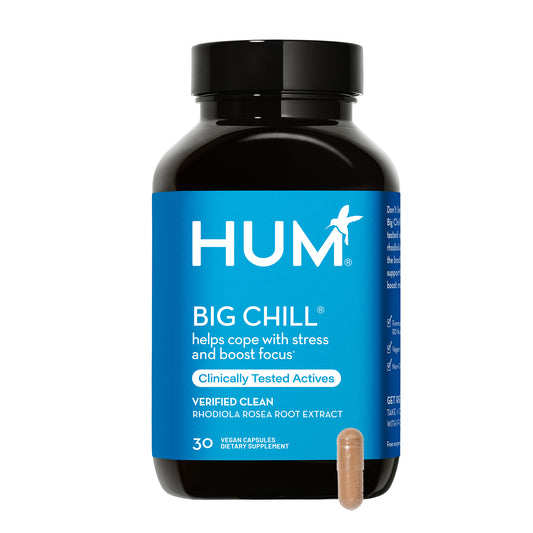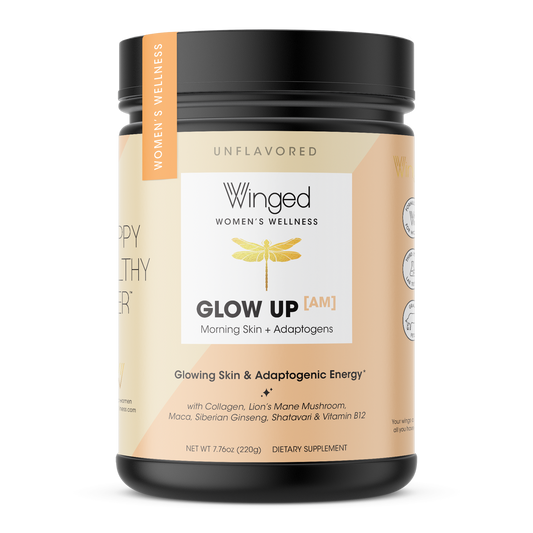We hope you see yourself in their stories — their symptoms, their highs and lows — and find that you’re not alone in this beautiful (but sometimes chaotic) phase of life.
Versalie Ambassador – Cristina, Age 43
Perimenopause, started at age 40
11+ symptoms, including hot flashes, trouble sleeping, mood changes, anxiety, fatigue, weight gain, lack of concentration, memory problems, libido loss, vaginal dryness, depressive mood
When and how did you first realize you were in perimenopause?
When I turned 40, that's when everything started. I had a lot of symptoms. I felt like I became another person, physically, mentally, and emotionally. And they all hit me at once. It started with the hot flashes. Insomnia was the worst. I wasn’t ready for the anxiety and sudden mood changes. The fatigue and unexplained weight gain were also part of it. Also, the lack of concentration, the memory problems. I could go on and on.
And I'm going to be very open about it — my libido. I have no sexual drive. It has affected my marital life. I'm like, “Don't even touch me. Don't talk to me about it.” I just have no drive. And that wasn’t me when I was younger. The [vaginal] dryness, that's difficult. It's like everything changed.
I've also noticed that I'm more irritable with my daughter as well. I would like something to help me with my mood because I snap like this [snaps fingers]. That was not me. I was such a chill person before. Now, anything can get to me.
It has been a struggle, especially when I thought something was wrong with me. I went to my doctor, and I went to a psychiatrist. I was put on different types of medications. They ran so many tests. First, they thought it was a thyroid disorder. They never told me anything about menopause. I kind of had to figure it out by researching on my own.
I also talked with women who were my age and older, and my mom, and a light bulb came on. Am I going through changes because of my age and hormone imbalance and the changes that go with that? That was kind of an awakening, but I had to figure it out on my own. And that was really difficult because I wanted to hear from somebody else for reassurance. I didn't want to diagnose myself.
You mentioned a few of your symptoms. Can you talk more about them and how they’ve affected you?
I have had to change my productivity, my routine, to add a little more me-time, self-care, and relax because I am not who I used to be. I have had to let go and stopped taking on so much at work and in my personal life.
Menopause has affected my home life — productivity in the home. I used to keep a neat house and cook homemade meals. I don't have the energy for that anymore. Sometimes it's not the lack of physical energy, but my mood. It's just like, “I'm not cooking. Screw that. I'm not doing it.” So, my home does not look like it used to look 10 years ago. That has been kind of an issue at home. My husband complains, but not just because I don't clean as much. Sometimes I make a mess and I have no desire to clean it up. He does complain the most, more than my daughter. My daughter has mentioned it once or twice.
Another thing is we used to be a very active family before, going out, doing things. I don't have the motivation or the energy to do so much anymore. It's too much. I do recognize I have a teenage daughter and I have a husband. I have to spend quality time with them and do things, but it's really hard for me to do that when I just want to stay home, eat a pint of ice cream watching TV. And honestly sometimes that's what I need.
 My work has also been affected. I take more time off than before. I'm late a lot because when my sleep is affected, I want to sleep a little more in the mornings and I'm usually late for work. Sometimes I also have to leave early because I'm super tired. I'm also less productive and tend to daydream more than before. I have to always try to be mindful that I have to pay attention and I make more of an effort to get my work done.
My work has also been affected. I take more time off than before. I'm late a lot because when my sleep is affected, I want to sleep a little more in the mornings and I'm usually late for work. Sometimes I also have to leave early because I'm super tired. I'm also less productive and tend to daydream more than before. I have to always try to be mindful that I have to pay attention and I make more of an effort to get my work done.
I never thought about all of this and how it's been a lot of changes. I just thought it was more about me. But now I see how it has affected my work, my home, my family. I kind of had an idea, but looking deep into it, things are very different.
What have you tried to do so far to manage your symptoms? Is there anything you’d like to try?
I don't have a mental health history, but as part of trying to figure out what’s going on and going to many doctors, I was diagnosed with anxiety and given medication for it. I take it from time to time when I see changes happening because they come and go, like a wave.
I have to do certain things before bed to unwind and relax so I can get some sleep. Because I don't sleep like I used to. I have trouble falling asleep, staying asleep, and waking up in the middle of the night also. That is the worst. Because then when I wake up, I can’t go back to sleep. Before I used to take naps. I try not to anymore.
I also try to exercise. It especially helps me manage my anxiety and helps me sleep better. When I exercise, I get really tired so I can actually get as much sleep as possible. I've joined some sports and things like that — tennis and pickleball with my husband, and some friends just because I want to be more active.
I have tried teas. There are some teas, the holistic type, to help me sleep, to help me relax — the chamomile and sleepy time tea.
I also try to eat well, and I take vitamins and supplements. Those are the things I have done to manage and feel better.
Have you talked to a medical professional about your perimenopause symptoms? How’d that go?
I first went to my OB-GYN. When I went to her with what I was learning about menopause symptoms, which I believe she should have presented to me, not the other way around, she dismissed it and told me to go to my PCP for other tests, to check the thyroid, and some other things I can't remember. And that got me upset. I was surprised that she dismissed me in such a way, since she’s an OB-GYN.
She told me that we need to rule out that you're not experiencing any other medical issues, which I get. But I had already had a lot of tests and I wanted to just have this conversation and at least run some tests to see if that was the case. Not send me to get tested for other things to another doctor and just dismiss it. It was more of her approach, how she was so dismissive of the conversation. It literally lasted 30 seconds. She just said, go to your M.D. and rule out if it's something else.
And I wanted to talk about options for treatment. I know there's hormone therapy, but I don't know much about it, so I would have appreciated the education. I don't understand why doctors wouldn't do that. My GYN should have done that. So, I was surprised and shocked at the response that I got.
Did anyone talk about menopause growing up? Did anyone talk to you about menopause before it happened?
My mom did tell me when her periods stopped. I remember my mom actually being happy about it. So, I thought:
"Oh, menopause is a great thing because that means I don’t have to deal with the bleeding or the pain. Little did I know that to get there, there was this whole journey before, that I am going through now."
I didn't know about the symptoms. I didn't know how the periods were first irregular and how the hormonal changes were going to impact my physical and my mental health. I didn't know any of that because that's not something that was explained or taught.
Maybe my mom went through some symptoms. Other women I saw going through changes didn't link it to menopause or perimenopause. I'm grateful that I was able to make that association so that I can understand.
"It's not really that I am either sick or crazy. I just I'm going through hormonal changes."
The Latino culture does not talk about menopause. We don't. We talk about beauty. We talk about staying young and the good stuff. These things are taboo among women, and I think that's why it's so dismissed in my culture.
I was raised Christian and was taught many stories in the Bible. One belief that was taught is that you don't touch a woman when she's bleeding. But also, that means that she's able to give birth, which is a sign that a woman is young and healthy. So, when you take that away from her, she's no longer good. A lot of that stays with us. Even now, as women we think, oh, you no longer can have children, you’re no good. And menopause therefore is a bad thing because it's the end of that.
 What role have your family, friends, and partner played in your menopause journey? Have you seen any changes in those relationships?
What role have your family, friends, and partner played in your menopause journey? Have you seen any changes in those relationships?
My husband is kind and helpful and understanding, especially with the mood changes. He lets me know when I'm out of character and when I'm going through my rages. My husband has also been helpful in doing sports activities with me because I mentioned that I want to be more active.
My anxiety is very high and sometimes my daughter notices that. And I had a panic attack in front of her once — which wasn’t good — but I couldn't avoid it. And she was very helpful in terms of trying to ground me and help me get through that. It’s not her job, but I'm grateful that she was there for me. I haven’t given her details or explained that it’s called perimenopause, but I’ve explained I'm getting older, and these are changes I'm going through. My daughter thinks it's more age related — which is true. But it’s something I do eventually want to talk to my daughter about to better prepare her because I wasn't prepared for it.
I have started to say no to people and have stopped going out with them. And that's including my sisters. I'm the oldest, so my sisters have not experienced this yet. They don't get it and they don't understand why I'm not so involved in their lives, helping with my nieces and nephews, babysitting. They don't understand why I can't help with other things with my elderly parents. So, people have noticed that I have more boundaries than before. I need that.
My younger friends don't want anything to do with me because when we go out, I'm tired by 8:30pm. And they're like, “What? We haven't even gotten started.” And I'm like, “Nah, you go have fun.” So, we don't have that in common anymore. I recently tried to join a book club and they laughed at me. I am in a different place physically and mentally than they are, so they don't understand what I'm going through. And I get it because at that age I didn't understand what this was and how it was going to impact me and my relationships. They’ll get there. They will.
I do have friends in menopause but it’s not a common theme we talk about. It's something that I did bring up a couple of times, but we talked about it because I brought it up. I don't understand why I wasn't warned by my friends who are older than I am. I remember one of them saying that she was kind of embarrassed to talk about it because that meant she was aging. So, there’s this stigma about it that we don't talk about it.
"We tend to try to be young and we try to look more youthful. We actually talk more about Botox than menopause."
I do have a friend who talked about it more openly. She's older than me and when she was going through it, she was a little more specific as to the changes that she was going through with the irregularities with her periods and the hormonal changes and the sweats and the flashes. She was going through them right in front of me. And that's when I realized, “Oh, this is what women go through.” I was younger and I had not experienced that yet. But I kind of had an idea. This is the hint that I had that pushed me to do my own research.
What I wish I knew: What would you tell your younger self about menopause if you could go back in time?
I wish I was told about perimenopause and that it starts earlier than what I thought. I wish I had known that it's a journey. That it’s not just something that happens once. It's so ridiculous the information that I received. We don’t know the process. What's first. What happens next? I didn’t know that either.
Are there any misconceptions, myths, or stigmas about menopause that you want to debunk or clarify?
One of the biggest misconceptions I would love to debunk about menopause is that it is considered by many to be a one-time event that occurs when you stop getting your menstrual cycles for a year. This takes away from the entire journey that starts before and continues after. This is a journey with physical and emotional changes that we experience for many years.
What advice would you give to others starting or going through the menopausal transition?
Educate yourself, learn about the symptoms, the changes, talk about it. And don't listen to doctors who dismiss you or don't know. Keep trying to get help. You're not crazy, you're not sick. I would say that because those were my first thoughts — I'm sick or I'm crazy. But you’re just going through changes. I would advise someone to just get the education, get informed, and remember you're not alone. Yeah, we all go through it.
What's an unexpected improvement in life now, as you’re aging and going through perimenopause?
Awareness of what’s going on with me. And being open about it — changing the conversation with my family and actually having the conversation. And awareness for others around me and making others aware, because I think it's something that my parents didn't have. My mom was cataloged as crazy in her forties. So I'm glad that I'm not. Being aware of what's going on is helpful. Knowing that there are some things that I can do to help also is a positive.

Why did you want to become a Versalie Ambassador?
Being an ambassador is a great opportunity to learn more about menopause, normalize the menopause transition, open the conversation, and help other women who are going through it. I think it's important to talk about menopause and to break the taboo around it. I wanted to share my journey and connect with others who can relate. I want to say that it is ok to talk about it and get the support we need. I'm excited to be a part of that.
What’s your favorite part about being an Ambassador?
I think the best part about being an Ambassador is being able to connect with other women who are going through the same thing. It's been really helpful for me to hear about other people's experiences and to know that I'm not alone. I also think it's important to be a resource for other women and to help them navigate this challenging time.
I love being an Ambassador because I get to help people. I love helping people find the resources they need and connecting them with the right people. I also love advocating for people and making sure their voices are heard. It's really rewarding to be able to make a difference in someone's life.
What’s the biggest change you’ve made since joining as an Ambassador? What’s one thing you’ve learned about menopause that you think is critical to share with others?
The biggest change I have made since joining as an Ambassador and learning more about menopause has been being more open about my journey and my struggles regarding menopause with others including family and professionals. It normalized what I’m experiencing, and I feel more comfortable addressing it, sharing information, and normalizing it for others who might be going through the same journey or who will go through it at some point. This experience opened the conversation for me. I think it’s critical to share with others that menopause is a journey and not a one-time event and it’s a normal part of our journey. There is so much lack of knowledge about this topic in general and there is so much stigma behind it. We need to develop awareness and normalize the journey.








